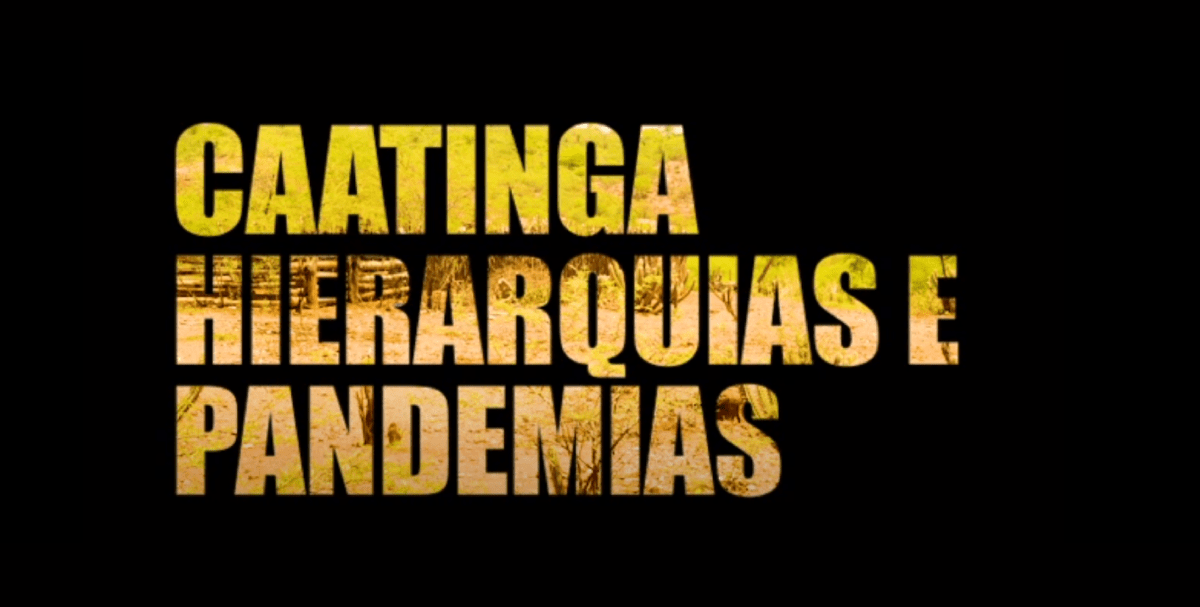Caatinga, Hierarchies, and Pandemics
by Antônio Bispo dos Santos

Video Commentary from Carmela Zigoni: Quilombolas in the Context of the Covid-19 Pandemic
Throughout the pandemic, quilombolas have been fighting against invisibility and for specific public policies that respect their culture and the vulnerability of their communities. However, they have been systematically victimized by institutional racism. The Covid-19 pandemic has killed more than 179 quilombolas in Brazil, and infected more than 5,000. This data comes exclusively from the National Coordination of Black Rural Quilombola Communities (Conaq), which has recorded cases and deaths, as national health agencies do not have ethnic-racial markers that would make it possible to identify this population. The year 2021 started with the news that quilombolas are being excluded from priority groups for access to the new coronavirus vaccine.
In a broader context beyond the pandemic, Quilombola communities are one of the groups most affected by projects with negative socioenvironmental impacts across the national territory of Brazil, such as mining and agribusiness. Only 7% of quilombola territories are officialised in Brazil, despite the right provided for in the 1988 Constitution and Decree 4887/2004. Since 2017, no budgetary resources have been allocated for land regularization for these territories. Quilombola communities continue to resist, and seek to practice other models of non-predatory production, such as agroecology and family farming.
Antônio Bispo dos Santos’ reflection on the pandemic, made through the video above directed by filmmaker Dacia Ibiapina, emerges from this context. For Bispo, the pandemic is the result of broader hierarchical and discrimination processes, in which not only humans are affected, but all beings of what humans call nature. This false opposition between humanity and nature intensifies the destructive socio-environmental processes that led to the Covid-19 pandemic.
Bispo’s reflections on enduring and contemporary coloniality in Brazilian society, as well as his concepts of confluence and transfluence as forms of counter-coloniality, are developed in the book Colonization – Quilombos! Ways and Meanings (2019), as well as in the article “We belong to the land” (2018). In these works, Bispo points to the infeasibility of the colonial model – barely disguised by so-called democratic institutions – for the reproduction of quilombolas’ ways of life, and of life itself on the planet.
When Antonio Bispo dos Santos elaborates the local context of the pandemic in the video above, “Caatinga, Hierarchies, and Pandemics,” he takes a stand in relation to this coloniality, centering quilombola worldviews and ways of life and the particular quilombola relationship with the territory, seen as a space of reciprocity between people and the environment.
This video was made respecting social distance. Production and direction are by Dacia Ibiapina, with support from Inesc and Conaq. The testimony was recorded by Sérgio Gomes with his cell phone, in December, 2020. The other images were recorded by Ivan Costa, in Saco Curtume, a quilombola community where Nêgo Bispo lives, in São João do Paiuí (PI). It was during the celebrations of Nêgo Bispo 60th anniversary, in December, 2019, before Covid-19. Directed by Dácia Ibiapina, edited by Isabelle Araújo, sound edited by Guile Martins and music by Luiz de Chubel. This video is also viewable on the Inesc website.
Suggested Citation:
Bispo dos Santos, A. 24 March 2021. “Caatinga, Hierarchies, and Pandemics.” AGITATE! Blog: http://agitatejournal.org/caatinga-hierarchies-and-pandemics-by-antonio-bispo-dos-santos.
